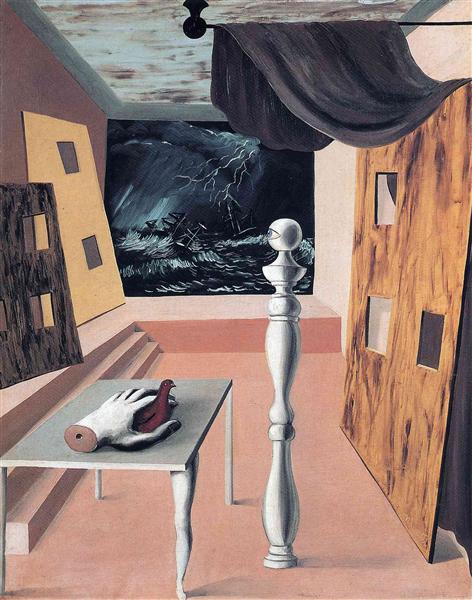THE END OF THE WORLD
By:
May 18, 2025
A series dedicated to poems, published c. 1900–1935, the Radium Age sf-adjacent themes of which include: dystopia and utopia, far-out mathematics and the fourth dimension, Afro-futurism, catastrophe, future war, new technologies, scientific breakthrough, dehumanization, cosmic awe, disenchantment and unseen forces, unknowable aliens and singularity. Research and selection by Joshua Glenn; thematic index here.

Quite unexpectedly as Vasserot
The armless ambidextrian was lighting
A match between his great and second toe
And Ralph the Lion was engaged in biting
The neck of Madame Sossman while the
drum
Pointed, and Teeny was about to cough
In waltz-time swinging Jocko by the
thumb —
Quite unexpectedly the top blew off.
And there, there overhead, there, there,
hung over
Those thousands of white faces, those
dazed eyes,
There in the starless dark, the poise, the
hover,
There with vast wings across the cancelled
skies,
There in the sudden blackness, the black
pall
Of nothing, nothing, nothing — nothing at
all.
— 1926. Although he often wrote in free verse, MacLeish here offers a Shakespearean sonnet that metaphorically seems to describe the end of the world. The repetition of “nothing” in the poem’s final line, at least one critic notes, is reminiscent of King Lear’s despairing “Never, never, never, never, never.”
RADIUM AGE PROTO-SF POETRY: Stephen Spender’s THE PYLONS | George Sterling’s THE TESTIMONY OF THE SUNS | Archibald MacLeish’s EINSTEIN | Thomas Thornely’s THE ATOM | C.S. Lewis’s DYMER | Stephen Vincent Benét’s METROPOLITAN NIGHTMARE | Robert Frost’s FIRE AND ICE | Aldous Huxley’s FIFTH PHILOSOPHER’S SONG | Sara Teasdale’s “THERE WILL COME SOFT RAINS” | Edith Södergran’s ON FOOT I HAD TO… | Robert Graves’s WELSH INCIDENT | Nancy Cunard’s ZEPPELINS | D.H. Lawrence’s WELLSIAN FUTURES | & many more.
